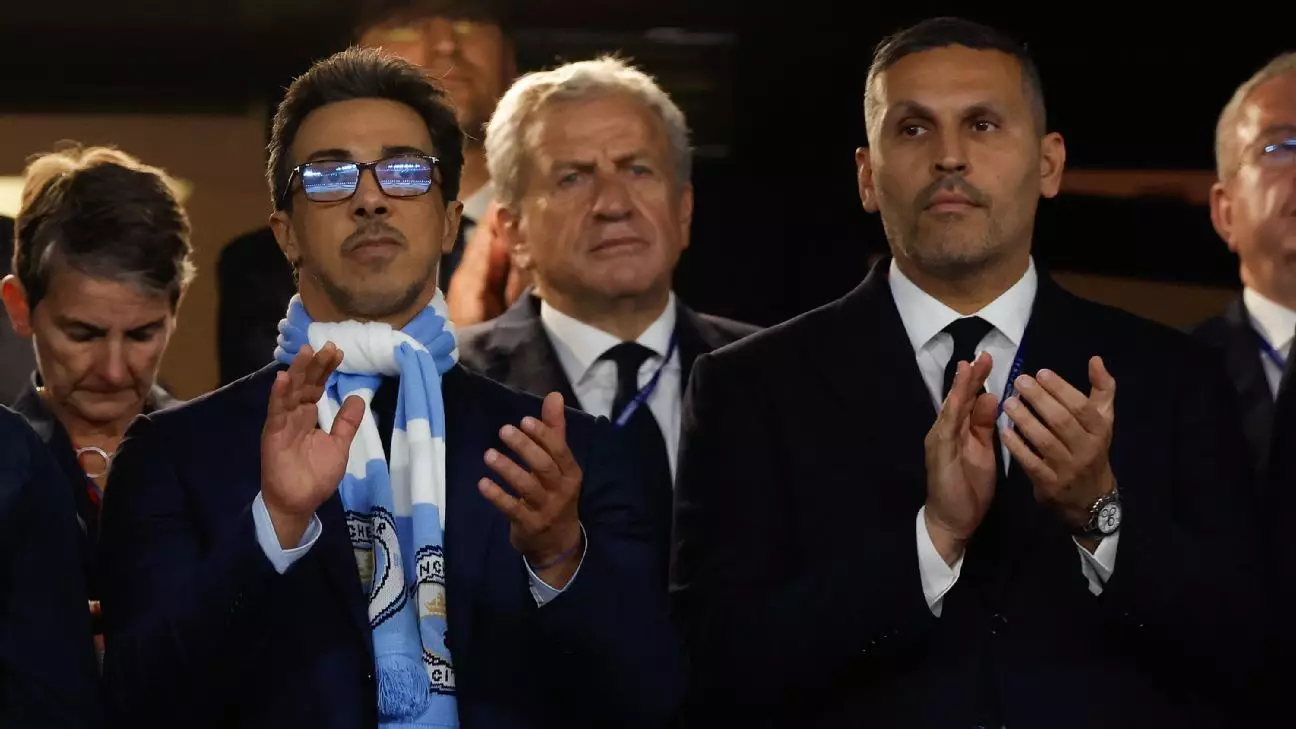As the commencement of Manchester City’s hearing regarding allegations of financial misconduct looms, the football world observes with bated breath. On the morning of September 16, 2023, an independent panel is set to convene for what could be one of the most consequential legal events in sports history. City faces 115 charges alleging breaches of the Premier League’s financial regulations, charges they staunchly dispute. The outcomes could reshape the current sporting landscape in profound ways.
Manchester City has achieved unprecedented success in domestic and European football since the 2008 acquisition by Sheikh Mansour bin Zayed al Nahyan. With 21 major trophies captured under this ownership, including multiple Premier League titles, the charges against them threaten to tarnish their accomplishments and potentially disrupt the fabric of the footballing world. If the club is found guilty, the consequences range from substantial financial penalties to a points deduction that could jeopardize their position in the league, or even expulsion from the Premier League altogether. The implications extend beyond Manchester City alone, impacting the integrity of the league itself and its governing body.
The current charges stretch back to 2009, encompassing a decade of alleged financial irregularities. The specifics are alarming: 54 charges relating to inaccurate financial information, 14 regarding player and managerial remuneration, and a further 35 for failing to cooperate with investigations. The crux of the matter lies within allegations that the club attempted to mask the true extent of revenues, particularly sponsorship income. The leaked communications, first revealed by Football Leaks and published in Der Spiegel, provide a troubling glimpse into City’s financial dealings, but the club has consistently challenged the authenticity of these documents.
The City case is unique not only because of the volume of charges but also because of the differing statutory limitations compared to UEFA’s financial framework. In 2020, City successfully overturned a two-year UEFA ban from the Champions League due to what was determined to be time-barred violations. Conversely, the Premier League operates under a different set of regulations that permits the hearing and adjudication of charges regardless of timing, which alters the landscape of City’s defense substantially.
As the hearing unfolds, expectations are high. Pep Guardiola, City’s head coach, has expressed his eagerness to clear the club’s name, stating, “Justice is there in a modern democracy.” Guardiola’s belief in the club’s innocence aligns with the broader perspective within the club’s hierarchy that sees the charges as unfounded attacks on their reputation. The legitimacy of the club’s financial practices hangs in the balance, and Guardiola’s future, along with that of key players, could be intertwined with the panel’s ultimate decision.
The Legal Power Players
Manchester City has engaged barrister Lord David Pannick KC, whose high-profile legal services evoke comparisons to the club’s formidable striker, Erling Haaland, due to their cost. The Premier League, on the other hand, fields Adam Lewis KC, from the same chambers as Pannick, suggesting a tightly matched legal duel. The hearing is expected to last a minimum of ten weeks, though the timeline for the ultimate resolution is uncertain, with provisions for both parties to appeal decisions.
The ramifications of this case extend beyond Manchester City’s boardroom. Chief Executive Richard Masters has acknowledged the necessity of resolving these issues for the credibility of the Premier League. “Part of any sporting competition is a commitment to uphold those rules,” he noted. The need for transparency within the league’s governance has never been more urgent, and the outcomes here will either reinforce or undermine that trust.
While the hearing has a private nature, it signifies a pivotal moment in sporting governance. With the potential for appeals and complex legal maneuvers, it may take considerable time before the public hears the final verdict. Nonetheless, the outcome will resonate through the halls of football administration and may reshape regulations relating to financial accountability in the sport.
As the anticipation builds, all eyes turn to Manchester City. The stakes couldn’t be higher—whether it’s an unprecedented fine or points deduction, the repercussions will be felt across the league. The club’s legacy hangs in the balance, and the final decision will mark a significant juncture not just for City but for the entire footballing world. The contentions of a professional football club regarding financial ethics and accountability will undoubtedly reverberate well beyond the outcome of this particular case, influencing how clubs operate within the financial confines of the modern game.

